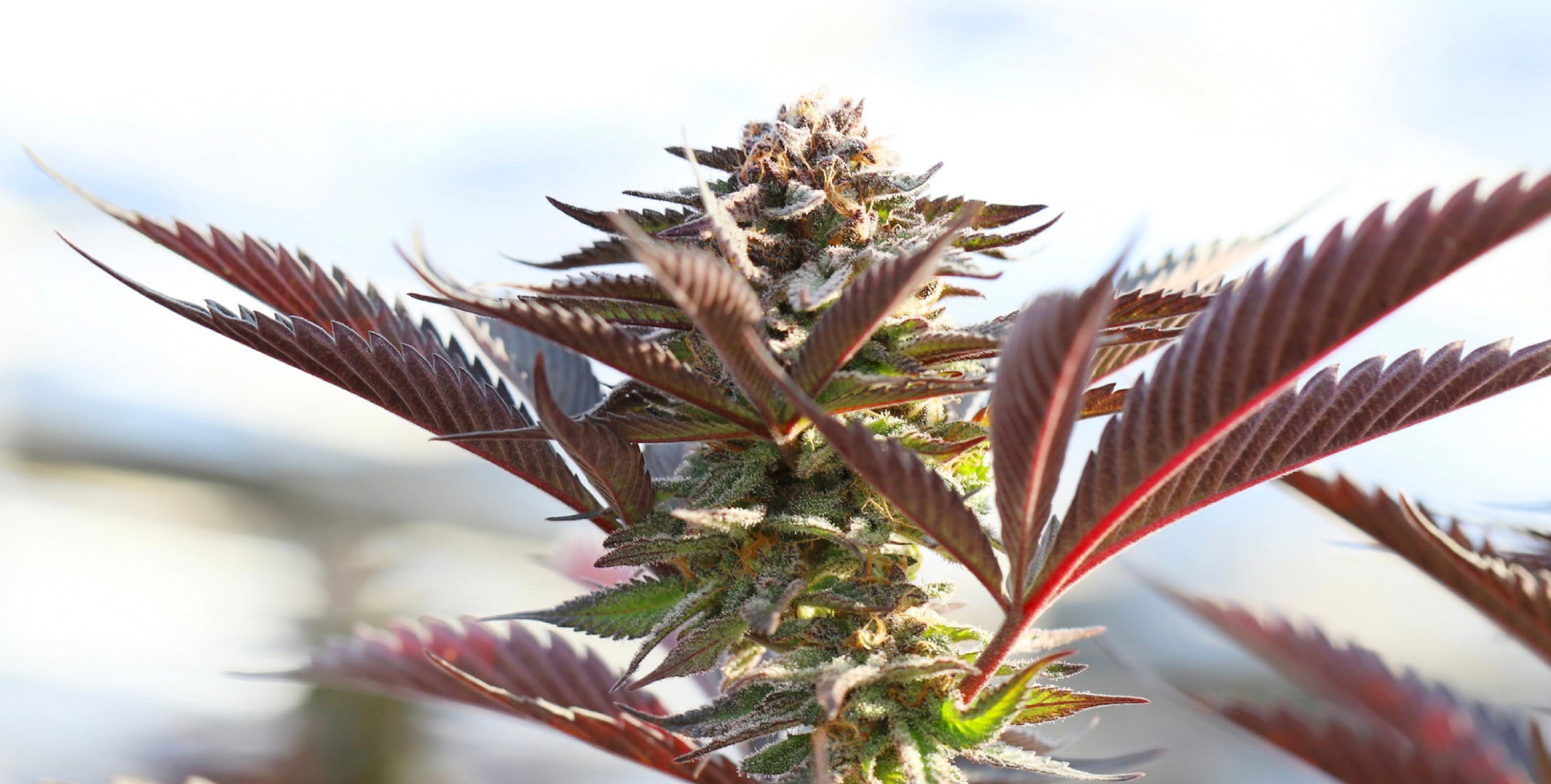by Sugar Team August 30, 2022 7 min read

You quit smoking! Congratulations, you're well on your way to becoming a more healthy individual. Perhaps you quit cold turkey or tried some of our flavored hemp cigarettes. You've beaten the cravings, made it through the nicotine withdrawal symptoms, and are already feeling like you can breathe better.
Only one thing - you can't shake that smoker's cough.
A smoker's cough is a common symptom experienced by those who have recently quit smoking cigarettes. The cough is caused by the accumulation of tar and other irritants in the lungs. These irritants cause inflammation of the lung tissue, which leads to coughing.
Even after you quit, the cough may linger for weeks or even months. But don't despair - there are things you can do to help get rid of it and stop drawing those stares in the movie theatre!

Every smoker, if they do it for long enough, develops what's called a smoker's cough. It's that hacking, phlegmy cough from years of breathing in irritants like tar and chemicals.
A single cigarette contains over 4,000 chemicals, including at least 60 that are known to cause cancer. If you looked at a list of other places these chemicals are found, like the one by the American Lung Association, you might understand why they irritate you:
Benzene - Found in rubber cement and gasoline
Formaldehyde - Embalming fluid
Naphthalene - Ingredient in mothballs
Toluene - Used to manufacturing paint
No wonder your lungs feel the effects of smoking. That’s why they need some time before they get back to normal, and why your body is constantly coughing.
A cough, at its basic level, is meant to
Expel any foreign irritants in your lungs
Clear the airways of mucus
Prevent future lung infections
A smoker's cough is different than a regular cough, though, because it's caused by long-term exposure to harmful chemicals and not an acute cold or infection. There isn’t any amount of coughing that can repair the damage done to your lungs by smoking - only quitting can do that.
If you’ve ditched the tobacco for good, still experiencing a cough doesn't mean you're destined to hack up a lung forever - there are things you can do to help your lungs recover.
You've quit smoking - that's the biggest change and the one that will help the most in your battle against a persistent cough. But if you want to move things along, and aren't willing to wait for years to reclaim your airways, some things have shown success (at least anecdotally) with the newly quit.
Before we start, it is important to remember that these aren’t substitutions for a healthy lifestyle, which will always have the greatest effect on your overall wellness. Don’t just pick a tip and think it will fix everything from the moment you start. Still, if you want to try a few things to boost your effectiveness, here are ten tips!
1. Drink plenty of fluids
This one is a no-brainer and is good advice even when you're not trying to get over a cough. Drinking lots of water will help thin out mucus secretions, making them easier to expel when you do cough. It also has several health benefits not related to your cough:
It helps carry nutrients and oxygen to your cells
Flushes toxins out of vital organs
Keeps your skin healthy and looking great
Helps with weight loss
Reduces fatigue
Boosts your immune system
So, drink up! In addition to water, green tea and herbal teas are especially good for smokers trying to get over a cough. They can help soothe the throat and have other health benefits like antioxidants.

2. Try a humidifier
Keeping the air around you moist can also help with mucus production. The humidifier will also add moisture to the air, which can help soothe irritated throat and chest tissues.
When considering which one to purchase, make sure it has:
A filter to clean the water before it becomes vapor
An automatic shut-off switch so it doesn't overheat
Adjustable humidity settings
Place the humidifier in your bedroom at night to help you sleep better and throughout the day in the room where you spend the most time. Just be sure to empty and clean it according to the manufacturer's instructions to prevent bacteria growth - which can cause other health concerns.
3. Gargle with salt water
This old home remedy can help clear mucus from the back of your throat. Follow these easy steps:
In a glass, mix 1/4 to 1/2 teaspoon of salt with 8 ounces (237 ml) of warm water.
Gargle the mixture for 30 seconds to a minute, making sure not to swallow any of the water.
Spit it out and repeat as necessary.
The salt will help reduce swelling and inflammation in your throat. Doing this several times a day can offer relief from that nagging cough.
4. Take a steamy shower
If you're having a particularly bad day for coughing, the warm, moist air from a shower can help loosen mucus secretions and make them easier to expel when you cough.
This isn't a long-term solution but it can certainly help provide some relief on a tough day.
5. Stay away from irritants
Tobacco smoke, dust, chemicals, and other airborne irritants can make your cough worse. If possible, stay away from places where there are likely to be irritants in the air.
If that means missing out on a happy hour with friends who still smoke, it might be something you have to accept for a while as you try to get your cough under control.
There are plenty of other irritants to avoid.
Cleaning products: Toilet bowl cleaners, furniture polish, oven cleaner, and bleach are just a few of the many cleaning products that can make your cough worse. When you're using them, be sure to open a window for ventilation and wear a face mask to avoid breathing in the fumes.
Air pollution: Smog, vehicle exhaust, and industrial emissions can all contribute to your cough. If you live in an area with high air pollution levels, try to stay indoors as much as possible.
Perfumes and fragrances: Colognes, perfumes, air fresheners, and other scented products can irritate your throat and lungs, making your cough worse. If possible, avoid using them or just ask that coworker to tone it down for a few weeks.
Chlorine (from swimming pools) and other chemicals: These can also irritate your lungs and throat, making your cough worse. If you must go swimming, be sure to shower afterward to rinse the chlorine off your skin and out of your hair.
Not to mention, one of the biggest triggers for people trying to quit is being around others who are smoking. If you can't avoid being around smokers, try to at least limit your exposure as much as possible.
6. Get some exercise
Exercise can help open up the airways and make it easier to cough up mucus, not to mention the countless other health benefits it can provide. A lot of heavy smokers find this a difficult step to take, however, so make sure to:
Start slow - a short walk around the block is a good place to start
Gradually increase the intensity and duration of your workouts as you feel comfortable
Find an activity you enjoy so that you're more likely to stick with it
Before you know it, you'll be reaping the benefits of regular exercise and saying goodbye to that pesky smoker's cough!
7. Try honey
Honey has been used for centuries as a cough remedy. It is thought to help coat and soothe the throat, making it easier to tolerate coughing. Add a teaspoon of honey to warm water or tea, or just eat it straight off the spoon!
8. Take over-the-counter medication
There are many medications available that can help relieve the symptoms of a cough, including:
Antitussives. These medications help to suppress the cough reflex.
Decongestants. These can help to reduce mucus production, making it easier to cough up.
Anti-inflammatories. These can help to reduce inflammation in the lungs.
There are also things like lozenges, cough drops, and syrups that can help to soothe the throat and make coughing less painful. Just make sure to follow the instructions on the packaging or even ask the pharmacist for guidance.
9. See your doctor
If your cough is severe, persistent, or accompanied by other symptoms like fever or shortness of breath, see your doctor. Sometimes people misdiagnose themselves with a smoker's cough when they have something more serious, like bronchitis or pneumonia. So it's always best to get checked out by a professional just to be safe.
10. Be patient
Remember, after smoking for so long your body needs time to repair itself. The American Cancer Society provides a timeline for recovery that most (but not all) smokers will fall under, and it includes some pretty encouraging statistics.
For instance, after just one month, the hair-like structures in your lungs called cilia to start to get back to normal. This might take up to 12 months to complete but it is a huge part of reducing those coughing fits.
Ten years after quitting, your risk of lung cancer is half of a smoker’s. So the sooner you quit, the better!
If you think that you're alone in the fight against a smoker's cough - you're not! Millions of people have successfully quit smoking, and many of them have had to deal with a cough afterward. But don't worry, with a little bit of time and effort, that cough will be gone before you know it!
Keep drinking lots of liquids, getting regular exercise, or maybe popping a lozenge now and again, and just like the tobacco you took out of your life, you'll soon be saying goodbye to that nasty cough!

by Sugar Team April 10, 2023 7 min read

by Sugar Team March 31, 2023 8 min read

by Sugar Team March 17, 2023 7 min read